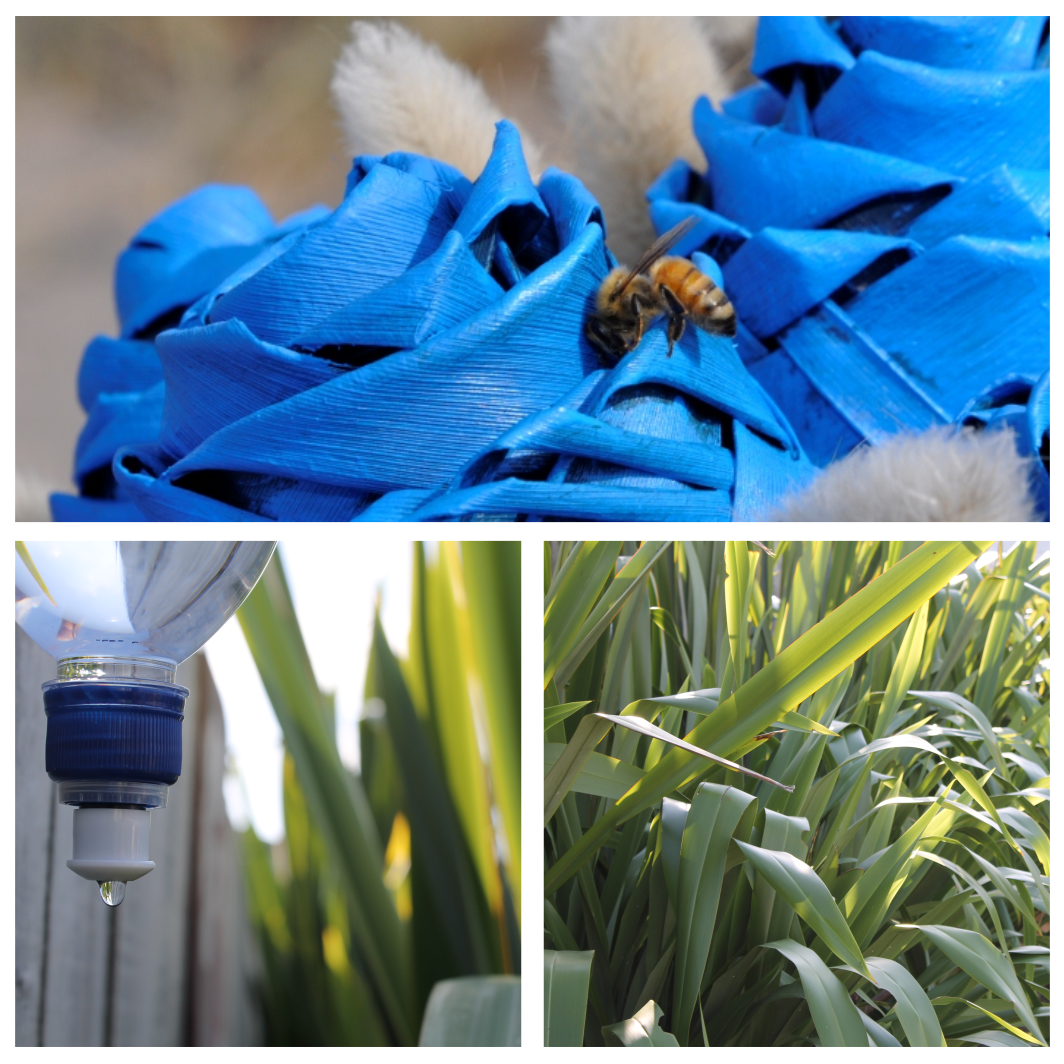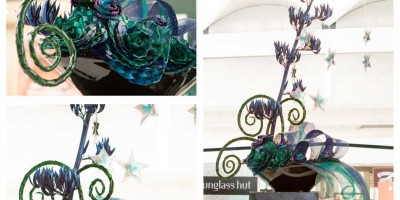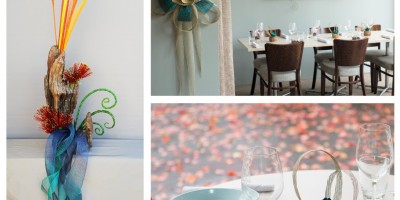Why flax flowers are the eco-friendly option for gifting flowers

But probably not the for the reasons you might think.
When it comes to gifting, flowers are at the top of everyone’s list, but not all flowers are created equal. Millions of flowers are cut every year – made into wedding arrangements and temporary corporate office decor. Did you ever consider the impact this has on the eco-system?
Specifically I am talking about bees – whose future existence is fully dependent on those flowers.
We cut our honey bees’ food source so we can send a gift to a loved one only for it to die in a few days, or weeks if we are lucky to get that long out of a bunch of cut flowers. Don't get me wrong, sending flowers is a wonderful gesture and it definitely makes one feel loved and appreciated, but have you ever considered the bigger picture? What's sparked my curiosity on the subject was a conversation with another fellow businesswoman a few weeks ago. She just bluntly told me "Flower's belong in the ground, for bees - every flower you cut is one less flower a honey bee gets to pollinate". She is a woman very passionate about the survival of our honey bees. Her statement got me thinking so I got to doing some research...
I've known for a long time that our bee population has been declining and that if bee's completely die out then so would our food source and then what...us? We need bees to pollinate our flowers and a large percent of our food require bees for this also. What could be killing these important little insects? I read that flower growers are among the heaviest users of agricultural chemicals, including pesticides that are possibly among the most toxic. Bees love flowers, but the pesticide residue left on those perfectly formed blooms do not love bees. They can and do make our buzzy wee friends very, very sick.
All is not lost for the humble honey bee. Did you know that Morgan Freeman converted his ranch to become a bee farm? It's true! So concerned with the rapid decline of bees, Morgan converted his 124 acre Mississippi ranch to contain nothing but bee friendly flowers and plants. In fact, in 2014 he had 26 hives, and that was just the beginning. It's not practical for all of us to become bee keepers like Morgan, but we can take baby steps on our way through life to support the bees. Here's a great exercise for the kids - get an old plastic water bottle and make a sugar water mix. Tie it upside down in a safe area amongst vegetation. Release the drinking valve just enough for the sugar mix to form a little bubble. Bee's will gravitate to this feeder when needing energy. Watching them feed and revitalise is so satisfying.
Ending our love affair with fresh cut flowers may sound hard, because when we think of flower alternatives we think tacky silk or plastic flowers. Not so. There is a natural option that feeds the bees as materials grow, but don't harm their fragile eco system. The beautiful flax flowers we (Artiflax) make are made from the leaves of our Harakeke (NZ Flax) bushes. We trim the outer leaves which promotes growth and keeps our flax bushes lush and healthy. Our flax bushes are home grown, right here in the Waikato at Artiflax HQ. The flowers that are produced naturally from our flax bushes are preserved for our honey bees and native Tui birds until the flowering process is completed. Our flax bushes are NEVER EVER sprayed with any form of pesticide or chemical. Yay for the bees!
At Artiflax we don't disturb our bee's food source and we produce a beautiful alternative to cut fresh flowers that can be gifted and enjoyed for years to come.
SAVE A BEE! Send a flax flower.



